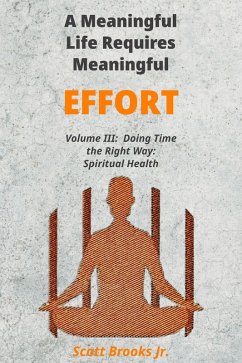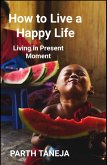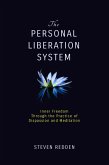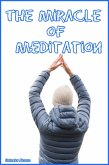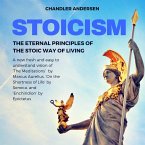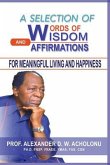To be clear, I'm not a therapist, MD, or a guru with a glowing halo. This book, as well as the others in this series, are not intended as medical or legal advice Although, I can't offer counseling or provide treatment, I can relate to the experience you face. The techniques and exercises in these three volumes helped me survive twenty-three years in federal prison with my sanity intact.
Doing Time the Right Way has a Three-Part Strategy. Volume I focuses on mental health and provides unique advice so you won't make the same mistakes many inmates do concerning idle time, dark thoughts and handling long-distance relationships. A bored mind tends to go negative. An unmotivated mind tends to lose self-worth.
Volume II covers an element essential to any proactive routine: exercise. Drawing from my experience as an American Council on Exercise (ACE) certified personal trainer, two decades teaching yoga, and training Keichu Goju Karate for over thirty years, I created exercise routines which take into consideration the limits imposed on prisoners concerning scarce equipment, limited space, and non-sensical rules pertaining to exercise. Physical activity provides benefits in equal measures to the mind and body.
This volume gets a little deeper. Most prisoners enter custody dealing with heavy negative emotions. They feel anger, self-hatred, guilt, and tremendous anxiety. Unfortunately, most bottle it up, but they still feel them. They simply choose to suffer in silence. But some, the introspective ones at least, question their lives, where they ended up, and how bad things turned out. These crave a new start.
Volume III takes a look at what I used to overcome the guilt I felt for the things I had done. It describes my discoveries regarding how to live a meaningful life in prison. Using these ideas and techniques, I was able to release the self-loathing I clung to as a young convict. With them, I transformed my prison experience into something I now look back on with almost as much gratitude as regret.
I understand firsthand how helpless an inmate feels. I also know there are ways to empower a life while in custody, ways to find purpose in that cold place. The concepts discussed here would benefit anyone who applied them, regardless of whether they've ever seen the inside of a federal facility or not. Unfortunately, with spirituality, most people have little interest in it when their lives are going well. It usually takes something like a bad diagnosis, an unfaithful spouse, or a judge banging his hammer before a person decides to look inside.
Prisoners meet that requirement in a big way. For many, serving time will be the worst experience they ever face. People in desperate situations tend to be more receptive to new ideas, especially when those ideas promise to reduce pain, restore hope, and make incarceration suck a little less.
Dieser Download kann aus rechtlichen Gründen nur mit Rechnungsadresse in A, B, CY, CZ, D, DK, EW, E, FIN, F, GR, H, IRL, I, LT, L, LR, M, NL, PL, P, R, S, SLO, SK ausgeliefert werden.

